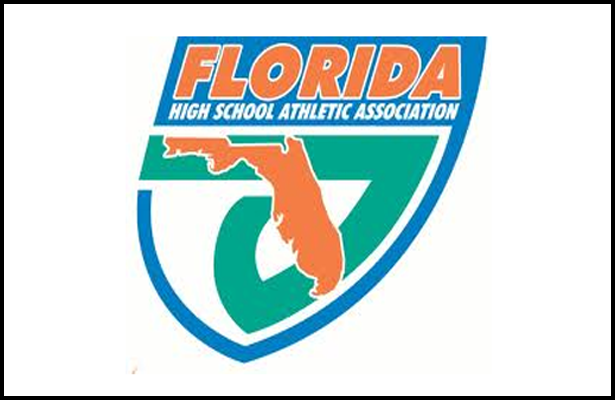The Florida High School Athletic Association (FHSAA) is proposing some changes in current policies that could reshape some of the athletic landscape as we currently know it as.
The FHSAA Board of Directors, which will review the proposed changes at its upcoming meeting on Monday, April 28 (to view the entire agenda, click here), includes numerous changes including membership dues and how often we do reclassification. A vote of the proposed changes will likely come at the final meeting of the current school year in June.
For member schools continuing membership with the FHSAA going into next school year will very much enjoy the new proposed changes to how much they will pay.
Changes to Policy 9.2.1.1 in the FHSAA Handbook will significantly reduced the amount that member school pays each year to the association. Instead of currently paying 55 cents per student in 9th, 10th and 11th grades with a minimum fee of $300 and maximum fee of $1,100 a year, schools would only pay $25 per year. The new rate would apply to any size FHSAA continuing member school.
“One of the goals I have had, since becoming Executive Director, is to reduce costs and increase revenue to our member schools. Three years ago, we reduced the membership fee for all member schools by 50%, and it has stayed at that reduced rate since. Now, as the Association goes out to obtain more sponsors, it allows us to reduce the membership fee to schools,” FHSAA Executive Director Dr. Roger Dearing said an email to FloridaHSFootball.com.
The changes would leave member schools with more money for them to utilize, something Dr. Dearing expressed in his email.
However, the biggest change that lurks among the policy changes is likely how often we will reclassify districts with proposed changes to Policy 12 in the FHSAA Handbook.
Currently, the FHSAA reclassifies schools, based upon enrollment, every two years or a biennial basis. The proposed changes to Policy 12.1.3 will redefine the classification term which would shift having district assignments be set on for a quadrennial basis or every four years. This would be effective starting with the next reclassification cycle slated for the start of the 2015-16 school year.
Also included in the Policy 12 changes is the elimination of the “10% rule.” The “10% rule,” which is currently listed under Policy 12.2.6(b), allows the executive director to administratively assign a school to the next lowest classification if it is within the 10 percent of the dividing line between the classification to which it would be assigned and the next lowest classification. This rule would effectively sunset after the upcoming 2014-15 school year.
The proposed changes in Policy 12 come about from several different advisory committees including an overall Athletic Directors advisory committee, Dr. Dearing explained in his email.
“The suggestions for Policy 12, is a result of those committees making the recommendations regarding classifications. Since 2008, when the financial crisis began, the number of new schools begin built in Florida has decreased. In addition the massive fluctuations in student population among our member schools has also settle down. Thus the committees recommended going to a four year cycle as oppose to changing after two. The elimination of the “10% rule” also came from committees.” Dr. Dearing said.
If the changes to Policy 12 were made as is in the proposals when they come up for a vote would mean that reclassification once visited for the 2015-16 school year, later this year, means reclassification would not be revisited again until late 2018 for the 2019-20 school year.
Other football-related topics worth keeping an eye on from the FHSAA Board of Directors Meeting
- Godby is seeking an exemption in Bylaw 8.3.1(c) to host Prime Prep Academy out of Dallas, Texas for its upcoming Spring Jamboree. Prime Prep which is currently owned by the well-known Deion Sanders, is currently not a member of an NFHS (National Federation of High Schools) association or a member of an NFHS associate member. If granted, Prime Prep would be part of the Jamboree during next month’s spring football season.
- The Officials Advisory Committee has recommended a change in the Football Mercy Rule. The rule would change when the clock would run once the 35 point differential is reached. The change outlined recommends that once a 35 point differential is reached in a contest after half time, the game clock would run continuously except for time outs or injuries. This comes after coaches over the last couple years have been asking for running clocks in the third quarter and asking that it be the entire time. Coaches from both teams in the past have had to agree to run the clock during the third quarter
The Varsity Message Board: Discuss the proposed policy changes and your thoughts about them









